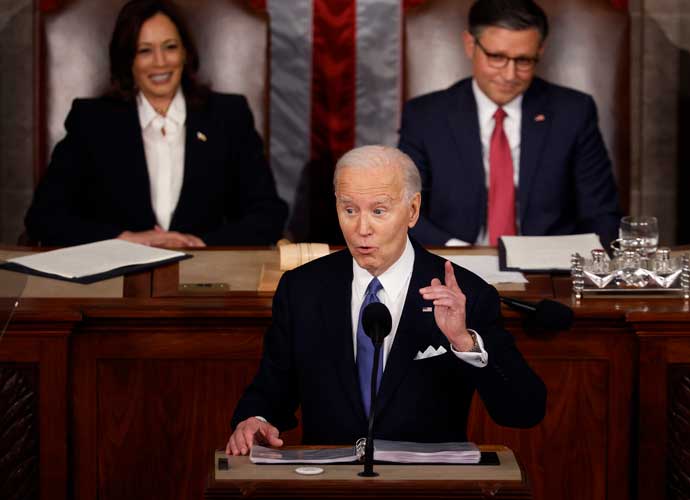Tim Morehouse Video Interview, U.S. Olympic Fencer
Coming off a silver medal finish at the 2008 Beijing Games, Tim Morehouse, 34, entered the London Olympics with his eyes on the gold. And while Morehouse and his teammates failed to medal, this appears to be a minor hiccup in the otherwise stellar career for Morehouse, who has complemented his athletic success both as a strong media presence and as an advocate for the sport among young people.
Born in New York City, Morehouse came upon fencing by accident when he was a student at Riverdale Country School. He originally took part in the sport just to miss his physical education class. Little did he know that this decision would change his life. Morehouse became the team’s fencing captain and was named the most valuable player in his junior and senior years. While at Brandeis University, Morehouse earned All-America honors in his final three years, and in 2000 Morehouse was voted by players and coaches as the NCAA men’s sabre fencer of the year. Four years later, Morehouse was selected as an alternate to compete for the U.S. Fencing Team in the 2004 Athens Olympics. In addition to earning a silver at the 2008 Summer Olympics, Morehouse is a two-time U.S. National Champion and was ranked as the top U.S. men’s sabre fencer from 2008-2011.
Morehouse has made appearances on several high-profile television shows, including NBC’s Access Hollywood and The Today Show, Fox’s Good Day New York, Bloomberg News and MSNBC. He has also been featured in magazines and newspapers such as Vanity Fair, USA Today, Esquire Magazine, and the Sports Business Journal. In 2009, Morehouse even had the opportunity to teach President Barack Obama a few fencing skills at the White House.
Morehouse has directed his passion for fencing beyond Olympic competition, and he believes the sport can open up a world of opportunities for young people. “I’ve just started this foundation, Fencing in the School, to try to bring the sport to places that typically haven’t had it,” Morehouse told Uinterview in an exclusive interview. “There is a lot more awareness about the sport now, and now it’s about creating the opportunities for kids to try it out now, and hopefully find a passion with it.”
| Get Uinterview’s FREE iPhone App To Record Celebrity Video Questions + Get Daily News Updates here!
I grew up in Washington Heights [New York] and I had no idea what fencing was. And I feel very blessed that I was able to get exposed to the sport when I was thirteen years old. As I went through my educational experience, I realized what a difference school and opportunity makes. When I graduated from college, I actually came back to Washington Heights and taught for three years while I was training for the Athens games, and continued working at schools in the East Bronx before the Beijing games. I thought that I really wanted to combine my passion for education, working with kids with a sport that I love and the opportunities and discipline that sport brings. I've just started this foundation, Fencing in the School, to try to bring the sport to places that typically haven’t had it. There is a lot more awareness about the sport now, and now it's about creating the opportunities for kids to try it out now, and hopefully find a passion with it.
In fencing, we train five or six hours a day, five days a week. It involves, obviously a lot of fencing, and similar to anything you do, we break it down into smaller parts. We’ll do an hour of footwork, working out our moves, our rhythm, our ability to have explosive legs. We’ll do a lot of technical work with our sabre, where we’re working on really being efficient about how we cut and where we cut. We also do a lot of bouting with each other, try to get game time experience. Off the strip of fencing, I’ll do three or four strength training sessions a week. We do a lot of plyometrics. My sport is fencing, my weapon is sabre, and points tend to be two to six seconds long. So we do a lot of all out sprints, rest, all out sprint, rest type of stuff to really build up the ability to go from zero to sixty really as quickly as you can.
Miles is a great guy. It’s really an honor to be on the London team with him. Of course, he was born in London, so he’s going back there now. He’s got a big tattoo on his arm that says that as well. For me, I’m the oldest guy on the team now, 33 years old, and I can remember Miles when he was maybe 12 years old when he was this tall, and now of course, he’s like a giant. I think he has a really great future, hopefully he brings home some gold medals for the U.S. in London, and I look forward to watching his career progress.
My splurge is chocolate chip cookies, I’m a big fan and I like a whole variety of chocolate chip cookies, so that’s an easy answer. In terms of diet when I’m training, I really try to start the day off on the right foot. If I have oatmeal and a protein shake in the morning, it really gets me off going in the right way. I think a lot of the things we do is the basic things of good dieting, making sure after a workout that we eat protein, like chicken or fish, and just try to keep healthy along the way.
RELATED ARTICLES
Get the most-revealing celebrity conversations with the uInterview podcast!







Leave a comment